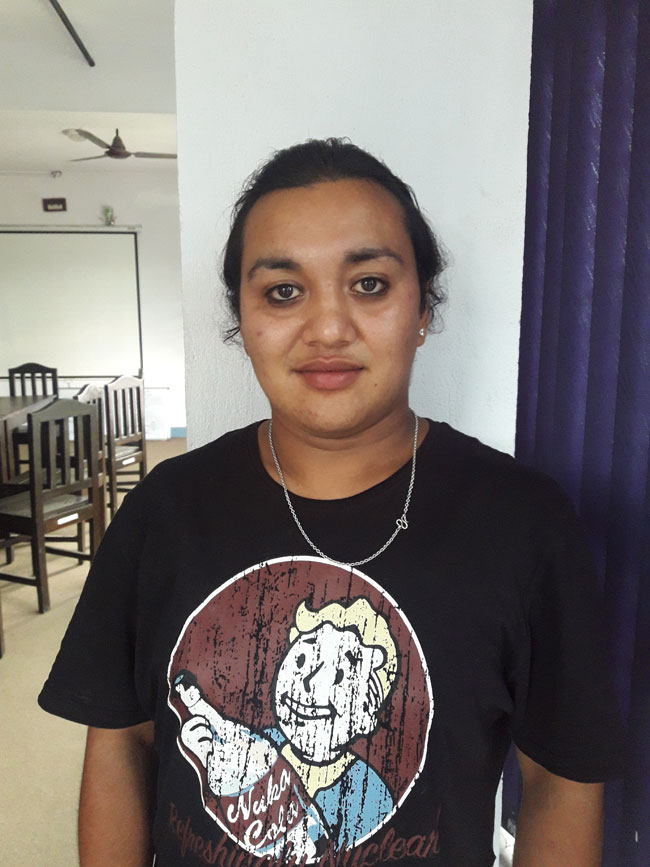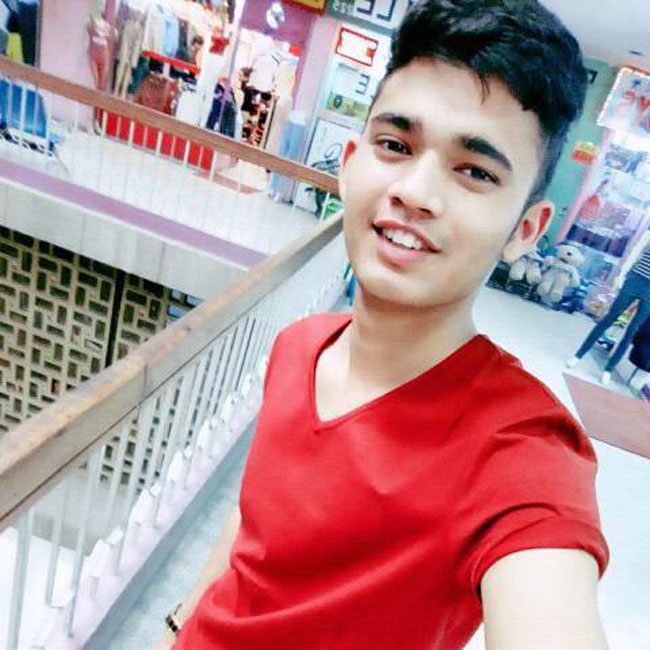Hari Bahadur Thapa’s ‘Rajgaj’ out in market
6 years ago

6 years ago

6 years ago

6 years ago

6 years ago

6 years ago
“I started writing poetry when I was young, because it was the sole medium where I could express the violence and discrimination I was experiencing,” said Alok Vaid-Menon, an international Transgender icon, in a rather grim tone.
Art became Alok’s best friend as real life conversations that would externalize Alok’s identity as a transwoman would risk harassment. Performance is ironically the only place for Alok to be real anymore. “Outside we have to pretend. Issues related to gender and sexual orientations are stigmatized outside an artistic background. But in plays, movies or any other theatrical presentation, we can talk about these issues that are often most important to us,” Alok said.
The more honest you are about your gender/sexual identity, the more punished you get for it.
“The initial stroke of violence starts from within our own families. And it doesn’t stop there. We experience all kinds of verbal as well as physical abuse from every level of society. People think we have absolutely no self-esteem, which often leads many to attempt suicide,” added Alok.
Alok also pointed out that it was essential for them to “unapologetically tell their own story, because if we don’t, someone else will say it wrong.”
As the Pride Month draws to an end, it is essential for each one of us to realize that the conversation around LGBTI identity issues is not new. Drawing parallel between ‘The Laraime Project’ and ‘Pride Climbing Higher’ -- a book by Blue Diamond Society and Creative Art Nepal-- Bruno Deceukelier pulled out strong survivor stories of LGBTIQ community in Nepal.
Meanwhile, Program Manager at NCASC in Blue Diamond Society (BDS) Durga Thapa spoke about the positive achievements made by the LGBTIQ community, especially after the establishment of BDS. She said, “We have been successful in holding discussions related to the LGBTI community, issues faced by them.” BDS, as of today, hosts a radio program to raise concern in LGBTIQ issue and offers family counseling and outreach programs across 36 districts in Nepal.
In addition, BDS also mobilizes its student interns to organize and attend social awareness discussions so that youngsters can openly talk about the LGBTI community. Thapa said it is essential that family members and friends become safe zones to the young LGBTI community so that have a safe haven to share their confusions.
According to Thapa, Nepal is the third country to have a provision for ‘Others’ section in its machine-readable passports, after New Zealand and Australia. “However, this does not make ours the third best country in terms of providing LGBTIQ community with essential human rights,” argued Thapa.
She said legal provisions regarding same sex marriage and adoption instead of surrogacy still affect LGBTI couples. “Lawmakers need to revise the discriminatory sub-clauses to make same sex-marriage and adoption possible for LGBTI community”. Legal requirement for adoption is for adopting parents to be exclusively gender binary.
“We are in need of extensive lobbying because we still don’t have enough people to tell true narratives of LGBTI community,” said Thapa. She further pointed out that providing sound job environment for people from LGBTI is essential and among the first few ways that the government can vouch for their rights.
Another issue that Thapa points out is that there exists a tendency among the LGBTI community members to adhere to stereotypical roles.
Real life testimonies

Kusum Bista (20)
I identify myself as an Intersex. I was born with both male and female reproductive organs. Though I always felt insecure about my gender, I have been blessed with a supportive family. Earlier, I was scared to go anywhere alone. But with the support of my family, I have grown more confident. I haven’t faced any physical abuses. But, not everyone in the LGBTI community is this lucky. Confessing one’s sexuality is a tricky thing. Though Nepal is a safer place for LGBTI community as compared to other South Asian countries, biases and harassment at work place is still prevalent.
Sita (name changed on request)
I am a lesbian. I come from a rural village in Nepal, and it was extremely difficult for my folks to understand that I am attracted to girls. They forced me to marry a man, and later my in-laws meted out physical as well as verbal abuses. I even attempted suicide. Prior to coming to Kathmandu, I was not aware that there were other people like me or that being a lesbian was a completely natural thing. In my experience, family’s acceptance is vital to live a normal life. I think if Nepal legalizes same sex marriage, it would change people’s perception to a certain level.
 Aayam Poudel (19)
Aayam Poudel (19)
The general misconception is that people choose to become homosexual, while the truth is I was born this way. I had a tough time coming out to my family as homosexuality is still considered a taboo. Since Nepal lacks gay idols or personalities to look up to, people still have trouble coming out. There have been tiny changes in people’s thinking about LGBTI community, but homosexuality is still not accepted. People are sarcastic and misunderstand LGBTI with being gay or transgender. Liberal approaches and respectable work environment are must to uplift the LGBTI community.
Ram (name changed on request)
I’ve always been attracted to both males and females, be it in school, college, or elsewhere. I’ve been teased and bullied in the past, or even at present. I accept myself the way I am, but I’m not downright open about it to everyone. And I have kept it a secret from my family. Some from the LGBTI community have found a way to find a partner through technology yet they face several trust issues. Comparatively, older generation of Nepal is still conservative in terms of talking about sexuality as a topic or accepting it than the younger ones.
Leave A Comment